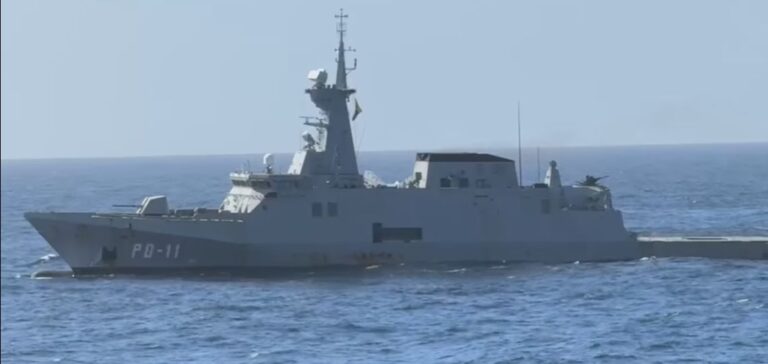Guyana’s President, Irfaan Ali, condemned the incursion of a Venezuelan military ship into a disputed region within the Essequibo basin. According to the president, the incident occurred early in the morning when the Venezuelan patrol vessel entered Guyanese waters and approached several oil assets in the Guyana’s exclusive economic zone. “Around 7 a.m., a Venezuelan naval patrol entered our waters,” Mr. Ali stated in a social media post.
Historical tensions between the two countries
Tensions between Guyana and Venezuela have escalated since ExxonMobil discovered significant oil reserves in the Essequibo region in 2015. While Guyana administers the 160,000 km² zone, Venezuela claims sovereignty over it. The Venezuelan military has not officially responded to the incident, but Guyanese authorities have alerted their international partners, including the United States, to the situation.
Impact on oil operations
President Ali asserted that Venezuelan military forces had also interfered with the operations of Floating Production, Storage, and Offloading (FPSO) vessels in the Stabroek block, telling them they were operating in a “disputed” area. However, he stressed that these vessels were acting legally within Guyana’s exclusive zone.
US reaction
The United States quickly responded to the incident, calling the incursion a “clear violation of the internationally recognised maritime territory of Guyana”. Washington warned that further provocations would lead to “consequences for the Maduro regime”. This statement highlights the strategic importance of the region to Guyana, which is supported by its Western allies in the territorial dispute.
A conflict intensifies
This incident follows another event on February 17, 2025, when a group of suspected Venezuelan criminals ambushed a supply convoy of the Guyana Defence Force (GDF), wounding six soldiers. The attack coincided with the 59th anniversary of the signing of the Geneva Agreement, a document signed in 1966 between Venezuela and the United Kingdom to resolve the territorial conflict, which remains disputed by Guyana.
In this context, Mr. Ali reaffirmed his country’s commitment to resolving the conflict diplomatically, while emphasising that Guyana would not tolerate threats to its territorial integrity.






















